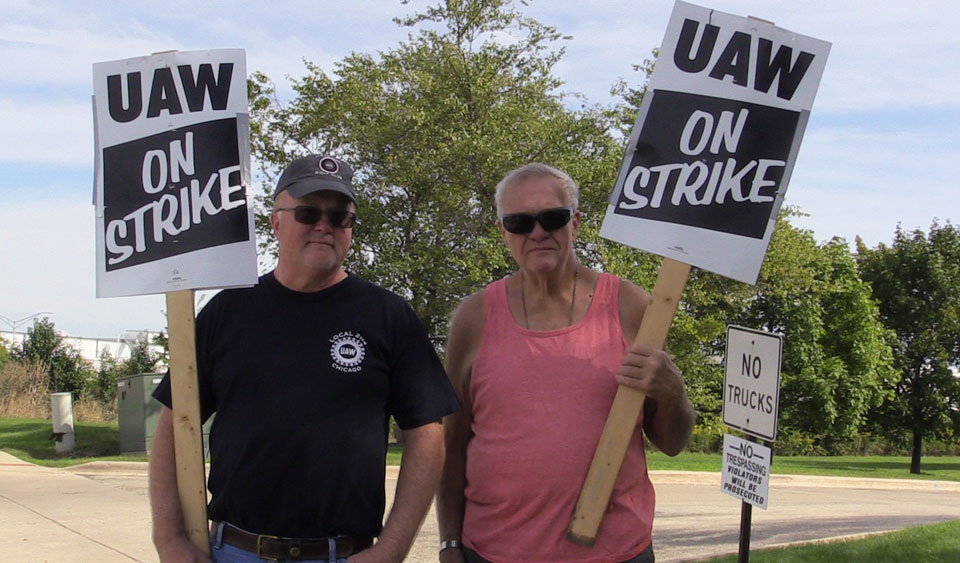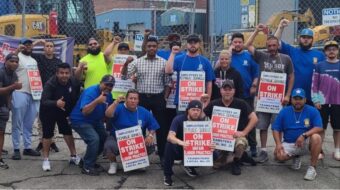
BOLINGBROOK, Ill. – Talks between General Motors Co. and the United Auto Workers continued Friday morning as nearly 50,000 workers struck the auto giant for the fifth consecutive day.
The two sides are arguing about job security, health care benefits, seniority, the status of temporary workers, and other matters.
Terry Dittes, UAW vice president and GM department director, told the press yesterday that much remains to be settled but that some progress is being made.
Meanwhile, workers at the GM Customer Care and After-Sales center here, like their counterparts all across the nation, are walking the picket line.
Steve Boyce, chair of UAW Local 2114 which represents the workers at the Bolingbrook facility, told Peoples World that “the biggest problem facing us now is how temporary workers are being used.
“They are getting paid only half of what the others get and they work month to month so they don’t have start dates and can’t attain security on the job,” he explained.
Workers here and across the country saw the company discontinue their healthcare benefits earlier this week.
There is hope that the strike will end soon. On Thursday negotiators in Detroit reportedly worked late into the night, something that could mean progress is being made.
A federal corruption probe continues meanwhile against union leaders. Workers on the picket lines either don’t discuss this or point out that they are hard workers who deserve respect and decent wages and working conditions, regardless. Most are extremely glad they have a union and note that when the company cut their healthcare benefits this week the union stepped in to make sure the effects on them are minimized.
The union is important too because it provides strike pay, which is $250 per week.
The way temporary workers are treated is illustrative of the games the company plays to squeeze everything it can out of its workers. Some temporary workers, all of whom work month to month, have been on the job for years. They do the same as other workers for less pay and fewer rights and want that rectified in the talks going on now.











